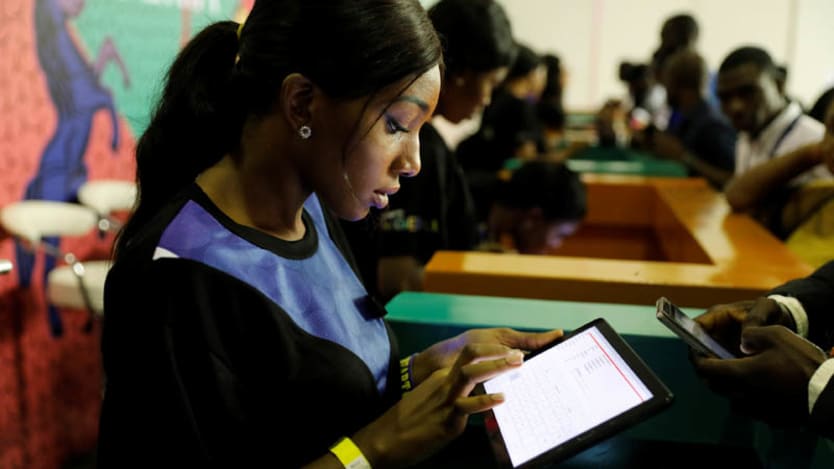
BARCELONA — The need for public-private partnerships often dominates the dialogue, but side conversations at the Mobile World Congress revealed opportunity for increased intersectoral collaboration — particularly when it comes to professionals in sectors such as health and education working more closely with digital and ICT for development, or ICT4D, practitioners.
“What happens often is that there’s no strong link and strong collaboration between ICT development professionals and the other development spaces,” said Sonia Jorge, executive director at the Alliance for Affordable Internet and head of the digital inclusion program at the World Wide Web Foundation.
“We don't speak necessarily the same language and we need to be stronger together because digital is merely a platform, a tool for everyone's agendas.”
In fact, by 2025, it is estimated that internet access alone could account for 10 percent of Africa’s total gross domestic product, creating 10 million new jobs, and generating $70 billion in gains in education, $188 billion in health, and $3 billion in agriculture. However, without more intersector connectivity, progress may be stymied.
“Because we are such a private sector-focused place, a lot of other development colleagues see us as “the lucky ones,” and that there’s already a lot of investment,” Jorge said. “They don't realize that, actually, the struggles are the same.”
Failure to collaborate can lead to duplication, said Ursula Mueller, assistant secretary-general of the U.N. Office for the Coordination of Humanitarian Affairs in a speech at MWC: “Coordination efforts allow us to eliminate duplication and gaps. It enables us to support people more efficiently and effectively at a time where our financial resources are overstretched.”
The cost to attend events such as MWC don’t help, Jorge said, adding that the amount of money spent creates a distorted image of digital development. “They think we don't need that same support, but in essence, we all need each other.”
Development actors, regardless of subsector, can more successfully work together by clearly articulating their needs and examining synergy between crosscutting themes, experts told Devex.
Being more frank and honest about what each organization or focus area needs is a first step, according to Kimberly King, CEO at HumanTec and co-founder of One Island Institute.
“Courageous, direct, transparent conversation only hurts for a moment and then it opens everything else up. In the nonprofit world, there's some sort of automatic response that wants to downplay that as if there it’s crass instead of just claiming ‘here's what we've got, here's what we need, here's how we're going to go about doing it.’”
Similar to a card game, revealing only one or two elements creates a sense of contest — but playing with all your cards face-up eliminates any competition for resources, she said.
“Frankly it's harder within the [development] sector,” King added. “Partnering is harder closer to sameness because that’s competitive, that's where scarcity is. It’s like, ‘you’re going to take my bone.’”
Jorge said it was also up to those working in ICT4D to better articulate the value of digital development for all other economic, social, cultural, and political development.
“We don't just do digital development and think about ICT or communications or telecom policy purely because of access. It has to be meaningful to health, education, agriculture, finance, the economy, and to gender advocates or others and when those links are not created, the distance is too far.”
For example, those in gender and those working in digital development may be working in a silo when, in fact, the issues intersect, Jorge said. The number of women using the internet is 12 percent lower than men, and this increases to 33 percent in least-developed countries. According to ONE, access to the internet can have educational and health benefits, which feed into a decrease in poverty eradication and a rise in life expectancies.
From there, the next step is to look at the synergy between crosscutting themes, said King, an expert in partnerships and sustainable innovation. This can serve as a point of leverage to go wider with your scope of work rather than feeding into a competitive culture.
“You take those common factors and you make many ecosystems so that instead of one big circle, you've actually got community-size things you can scale by deploying a lot more people and organizations,” she said, adding that while it may take longer, it will go further.
“Most people are looking for ‘let me do two moves and stop,’ but actually, in this case, ‘if you want to go fast, go alone, if you want to go far, go together’ is true.”
She also advised looking at who works within an organization rather than the organization itself in order to secure the right passion to partner for change.
“Pay attention not just to the organization — an organization is their brand name — it's the champion inside. If you just get a figurehead you'll have a go-to [person], but you will not necessarily get a breakthrough.”
Search for articles
Most Read
- 1
- 2
- 3
- 4
- 5








